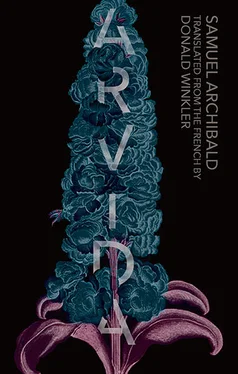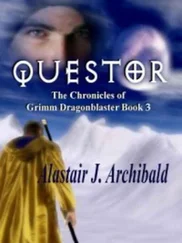In the opposing ranks were Jean-Guy Talbot, Henri Richard, Claude Provost, Gilles Marotte, Ken Mosdell, and many others. In the nets, I believe, was the former Rangers goalie Gilles Villemure. The coach and manager of the team, who during the exhibition games served as referee, was Maurice Richard, the Rocket. Pitou appointed himself scorekeeper and house announcer.
The Arvida players were no pushovers. All had played at least to the Junior level, including my father, who wasn’t playing at that point because he’d hurt his knee and my mother was pregnant, but the family legend was that he’d had his nose broken by Guy Lafleur at the Remparts camp a few years earlier.
Among them, Yvon Bouchard had played in Europe, and Mauril Morisette and Réjean Maltais in the American League, while Germain Gagnon had made the Islanders camp in New York. All represented the fragile memory of a time when the balance of power wasn’t yet predetermined, when the far corners of the countryside produced humble athletes as good, if not better, than those in the urban centres.
An important page in regional history was written, in fact, when in February 1910, the Canadiens hockey team came to contest an exhibition game against the Chicoutimi Hockey Club. The Canadiens, led by the marksmen Didier Pitre and Newsy Lalonde, were unable to score a single goal against the legendary Georges Vezina. They lost 11-0, and left, their tails between their legs, but with an important consolation prize: Vezina himself, who tended their nets for sixteen seasons, only to die, just like that, from a coughing fit, before having blown out even forty birthday candles.
Of course, no one was going to abscond with a major league club after the match at the Community Centre. The dreams of glory had had their day, and the former Canadiens, in any case, hadn’t even arrived by bus. They’d come down in a cavalcade, four by four in big Buicks, Molsons tucked between their legs. That was no reason to knuckle under, certainly. And it was no accident that the Arvidian who led the assault was himself a goalie, and doubtless the player who’d come closest to a career in the National Hockey League. Claude Hardy had played in the AHL for the Springfield Kings and the Rochester Americans, had played several games in the NHL, but had decided to swap his dreams of glory for the love of a woman and a job as fireman that his father and a priest had found for him.
He still loved his wife and the job, but he missed the glory. From the start of the match, before three thousand people at the Community Centre, Hardy adopted a super-aggressive style verging on mental imbalance, akin to that of Gerry Cheevers, or the approach popularized later by Ron Hextall. He shot out of his goal like a wild man, skated far from the neutral zone to renew the attack, and aimed great hatchet blows with his stick at anyone coming too close to his net.
Above all he played goal. The shots that the former Canadiens in vacation mode lobbed in his direction ended up in his mitt, under his pads, diverted into the stands, everywhere but in the net.
At the end of the first period, the score was 3–0 for Arvida. Hardy seemed to have lit a fire under his teammates, one that had long been dormant. The crowd, packed shoulder to shoulder, was jubilant, and the Canadiens seemed not to know what had hit them. They’d come to have fun and be served a free meal. Most were playing bare-headed with their locks smoothed back to charm the local beauties, and perhaps to entice one of them into their room at the Richelieu Motel. Now their hair was a mess and they were bleeding from the nose.
They didn’t like that, nor did the Rocket and nor did Pitou, who hadn’t struggled to entice these sports legends to Arvida just to have them beat up on. He tore a strip off the players in the locker room during the first break, reminding them that they wanted to fill the arena and his bar afterwards, that they wanted a great party and money to finance the league, not a bloody Saint Valentine’s massacre.
He ended by saying:
“Come on. These guys are our heroes.”
And that’s when Hardy, sitting bent over, staring at a point on the ground between his pads, super concentrated, raised his eyes to Pitou and replied:
“Heroes my ass.”4
No one added a word, and Pitou left the room, cursing.
The second period was more difficult for the Arvida stars, who bled from the nose in their turn. The Habs had woken up, and the Rocket, as referee, showed himself to be very parsimonious with his whistle when his former teammates pounded the locals into the boards. Pitou himself, as scorekeeper, played free and easy with the time, favouring the legends, terminating their penalties with undue alacrity, and dragging out those imposed on his obstinate fellow Arvidians.
And yet the Arvidians held their ground. Hardy especially. He gave up three goals, but stopped an improbable number of hard shots, while driving the crowd wild. He raised his arms in the air and saluted them. When the action shifted to the other end, he pulled a comb out of his mitt and adjusted the part on the side of his head, like a little punk. The spectators howled with laughter. Towards the fifteenth minute of the second period, Henri Richard got a breakaway while Hardy was doing his little stunt. Hardy let Richard come at him without putting his helmet back on, his head held high like that of an ancient warrior. Richard waited until he was just the right distance away, and unleashed a vicious slap shot that Hardy grabbed a nanosecond later, sweeping his arm around in a wide arc. The puck slammed into his mitt with a hollow plop, like a burst of buckshot into a pillow.
That’s when Hardy committed the most Saguenayan act I’ve ever seen in my life. Courageous, grand, arrogant, and in the end utterly stupid. Before the referee could even blow his whistle, Hardy dropped the puck and slid it towards Richard, as if to say, “Here, have another go.” It took Henri Richard two or three seconds to grasp the significance of the gesture, after which he charged Hardy, letting his gloves fall to the ice. The brawl became general, and while the crowd noisily voiced its elation, Maurice Richard, the rocket, skated to the scorer’s box near the penalty bench, and said to Pitou:
“Hey. We’re not here to be laughed at.”
The Habs added another goal after the fight, and the teams went back to their locker rooms with the score 5–4 for the locals. Pitou apologized to Maurice, and, confident, went to join the players. He had a plan.
The substitute goalie for the Arvida stars was Rémy Bouchard, caretaker for the high school, and tavern keeper. For him it was an honorary position, because he’d done a lot for the league and the team. He was a good-humoured fellow, liked by all. It was said that he could drink a twelve-pack in less than forty-five minutes, and that he kept his goalie equipment all year long in the back of his pickup, so that it smelled of mould and cat piss. In his entire life, however, he’d never stopped anything, neither a puck nor a beach ball.
Pitou convinced the players that during the third period Rémy should guard the goal vis à vis the idols of his youth. The idea wasn’t hard to sell, because everyone liked Rémy, and they’d had enough of Claude Hardy’s immoderate behaviour.
And so the third period began with Rémy Bouchard in goal, and no one on the bench in the goalie’s spot. Still in the locker room, Hardy had repaired to the showers.
The Habs were out for blood and everyone expected that the exploit of the commercial league’s stars was nearing its end. As soon as the puck dropped, the Canadiens took control. Talbot coaxed Bouchard like a rookie towards his right, and flipped a beautiful quick pass to Henri Richard on the left. He rifled a shot towards the empty slot that was at least as powerful as the one he’d launched at Hardy in the second period.
Читать дальше












